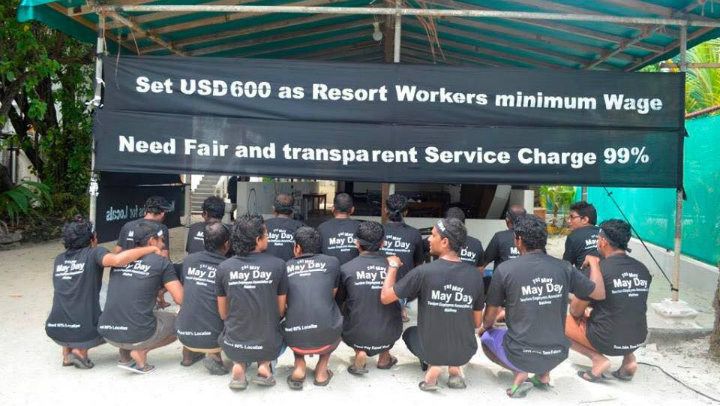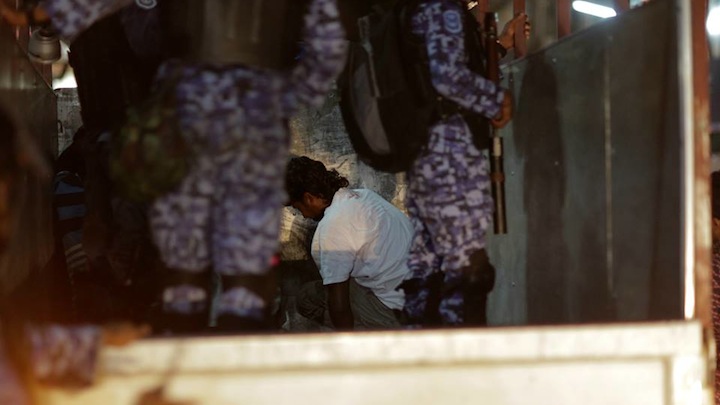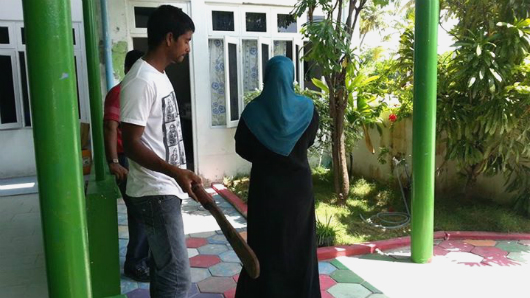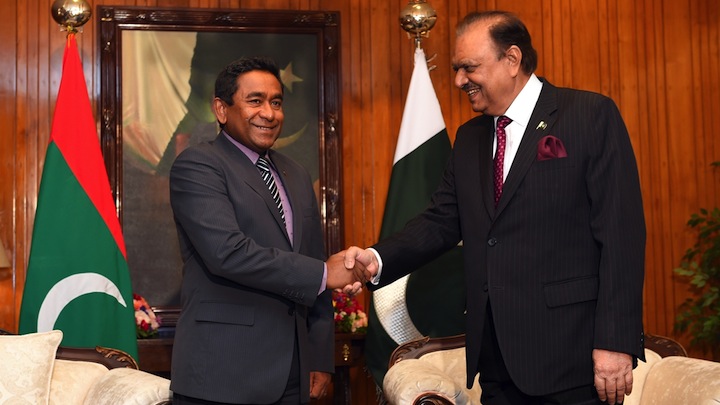Approximately half of the Maldivians working in the tourism sector have signed a petition demanding that the government set a minimum wage of US$600 for resort workers.
Some 5,300 out of 11,426 Maldivians employed in the multi-billion dollar industry have signed the petition launched in April by the the Tourism Employees Association of the Maldives (TEAM).
The petition was circulated in 77 of the Maldives’ 108 operating resorts.
The Maldives does not have a policy on minimum wage and setting one will require an amendment to the Employment Act.
“Only three to seven percent of all tourism revenue is spent on employee wages. The average resort worker only earns US$ 250 per month,” said TEAM’s vice president Ahmed Saleem.
The tourism worker’s organization says setting a minimum wage of US$600 will be easy, claiming a resort “has the capability to earn enough revenue to pay off all wages in one night alone.”
“We know how much resorts earn. We know how much taxes resorts pay to the government. We also know how much is paid in wages, and that is very little compared to the rest,” said secretary general Mauroof Zakir.
The petition also asks the government to set an eighty percent quota for Maldivians in the tourism industry policy. Current laws require 50 percent of resort employees to be local, but the rule is not widely enforced.
Preliminary figure from the 2014 census indicated that foreign employees amount to 59 percent of all tourism employees, with 16,342 expatriate workers.
“Over US$358 million is transferred out of the country as wages for migrant workers annually,” said Mauroof.
He said implementing the quota would help achieve the current government’s pledge of creating 94,000 new employment opportunities within its five year term.
The petition also wants president Abdulla Yameen to honor a pledge to make shares in resorts available to their rank-and-file employees, a rarity in the country where resorts are owned by private companies controlled by a few individuals.
In February 2014, President Yameen said that by the end of the year, a number of resorts would be floating a portion of their shares to the public, and urged Maldivian employees to become shareholders.
The petition also demanded the government to pass a Trade Union Act through the parliament.
Deputy tourism minister Hussain Lirar said that the government will consider the petition.
“The industry consists of a lot of stakeholders, not only TEAM. We will have to hold discussion with all of them before implementing new regulations,” he said.
Tourism Minister Ahmed Adeeb said he could only comment on the petition once he sees its demands.
Meanwhile, TEAM members today said the organization will hold a rally on May 30, where “resort workers will come to Malé and present the petition to the relevant authorities.”
The petition is going to be submitted to the president, the vice president, the parliament, the tourism ministry, the economic ministry, the attorney general’s office and the youth ministry.
“We are willing to negotiate with the government, but if the government does not heed our demands we will use constitutional rights to strike as a means of protest,” said Mauroof.






